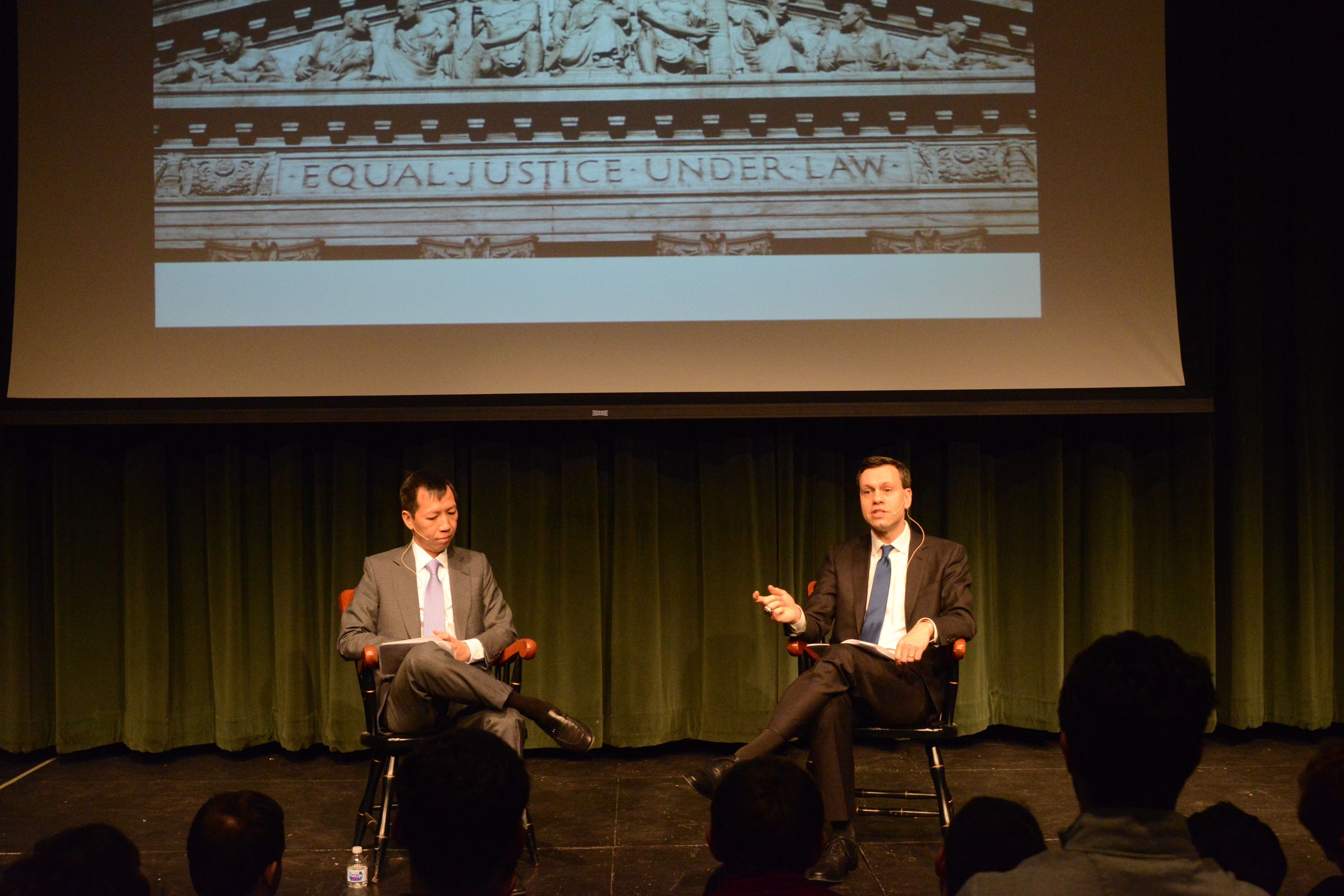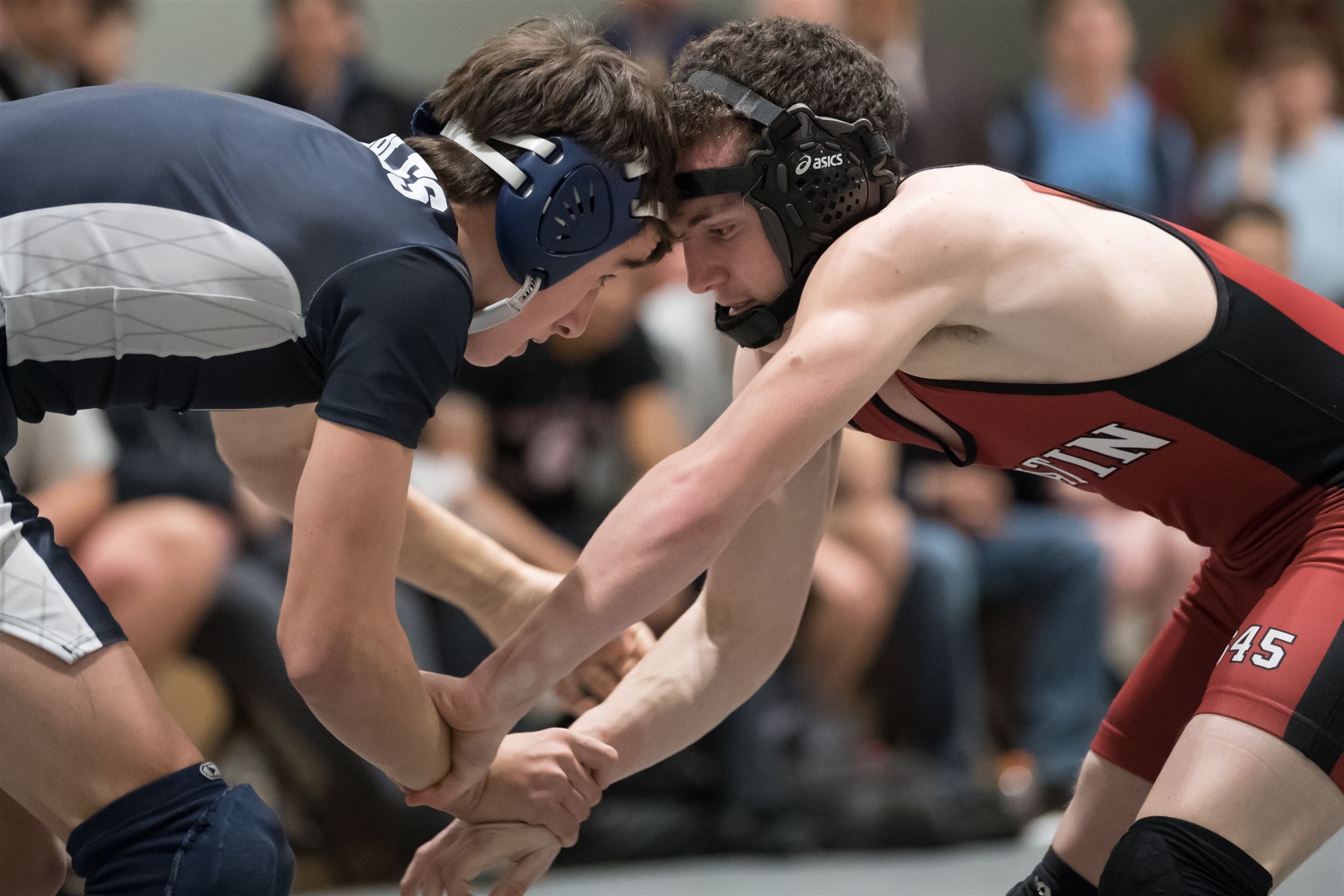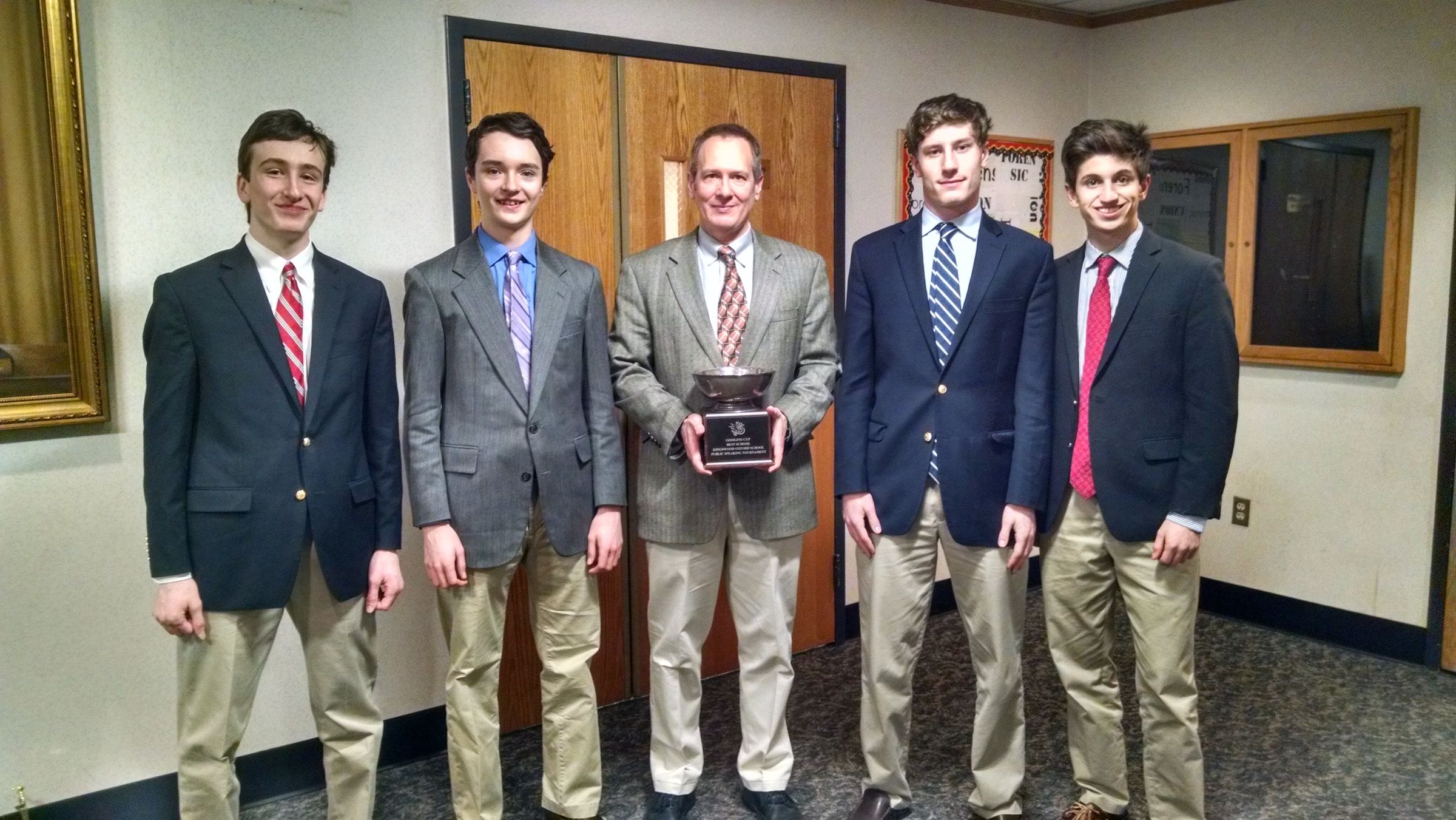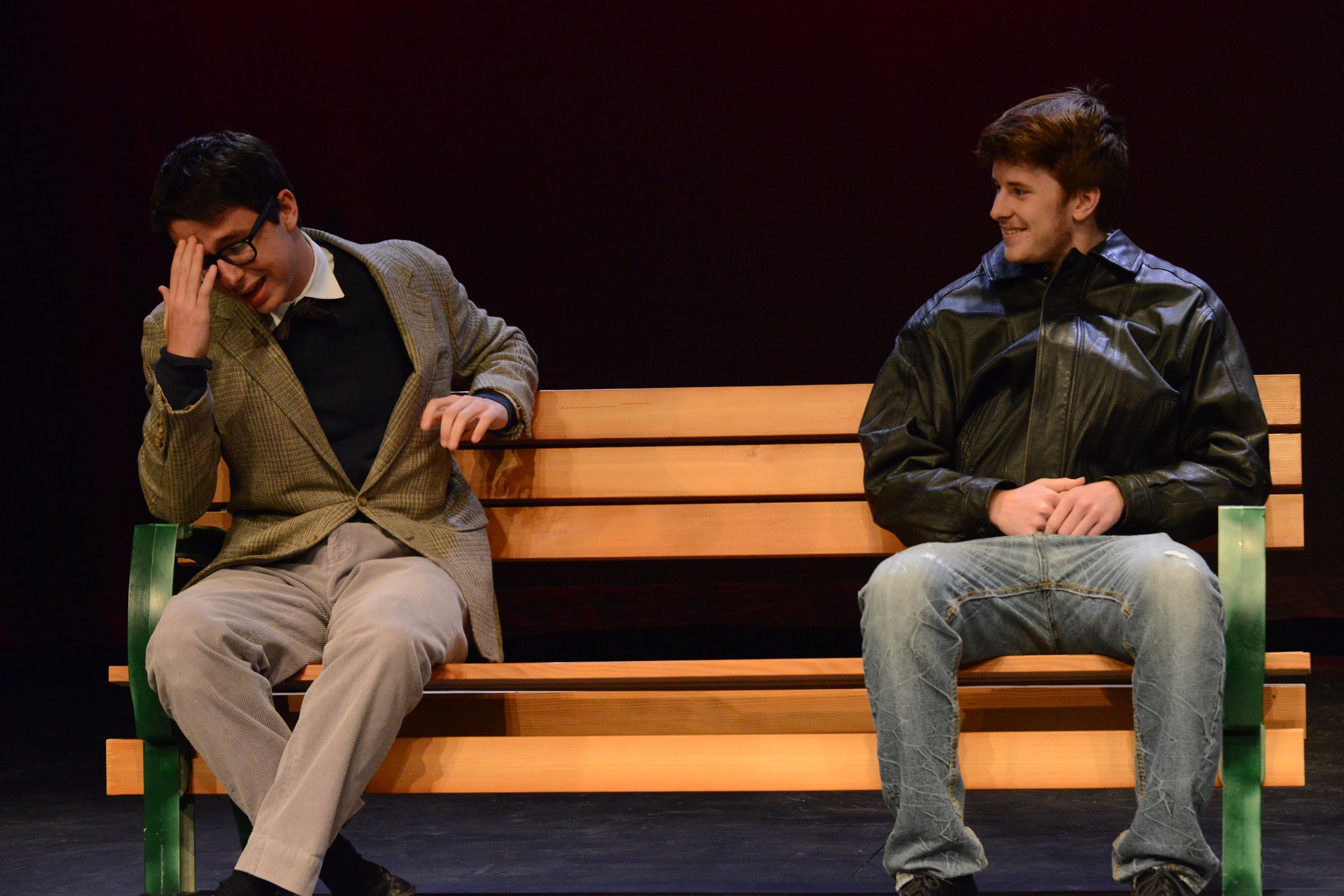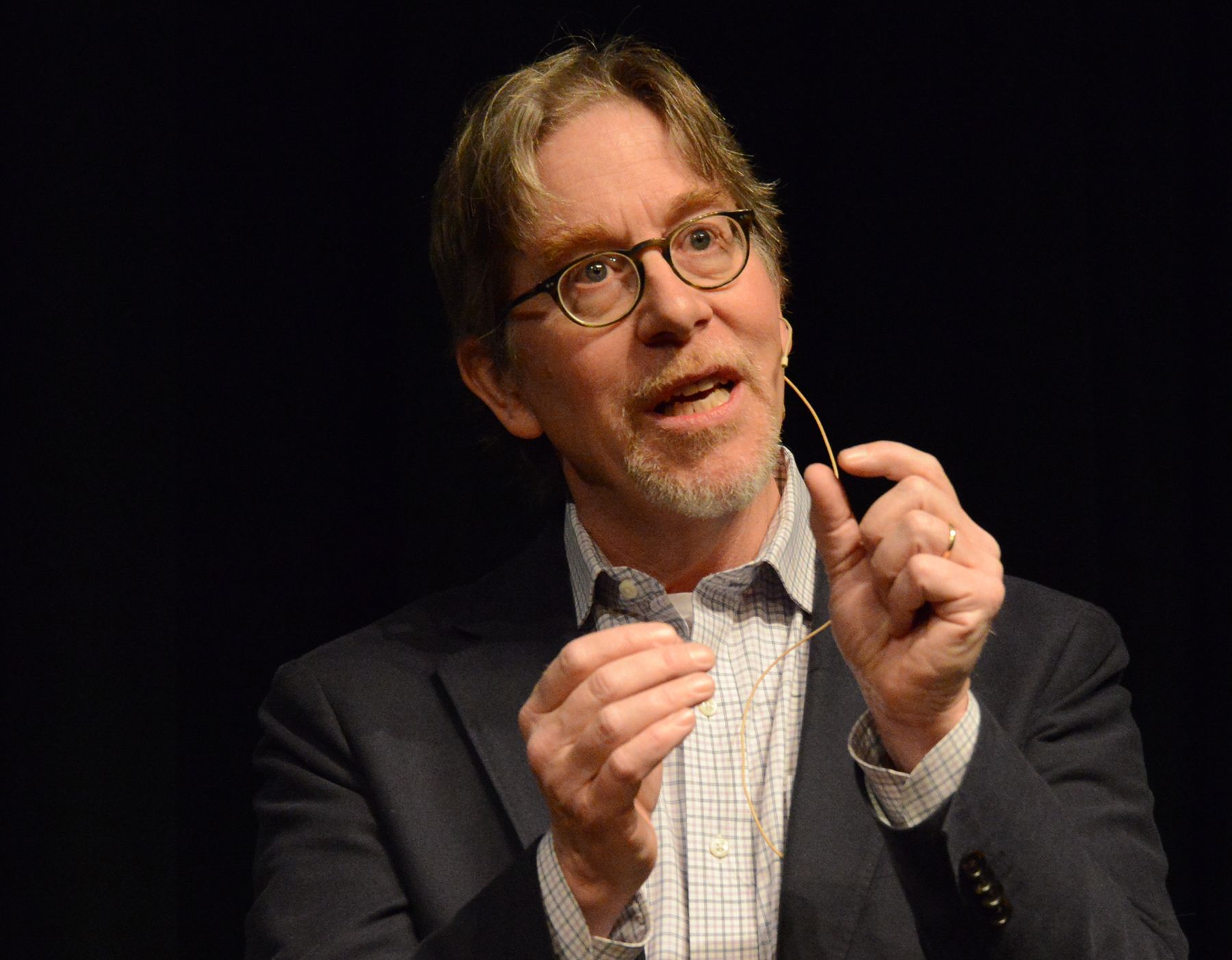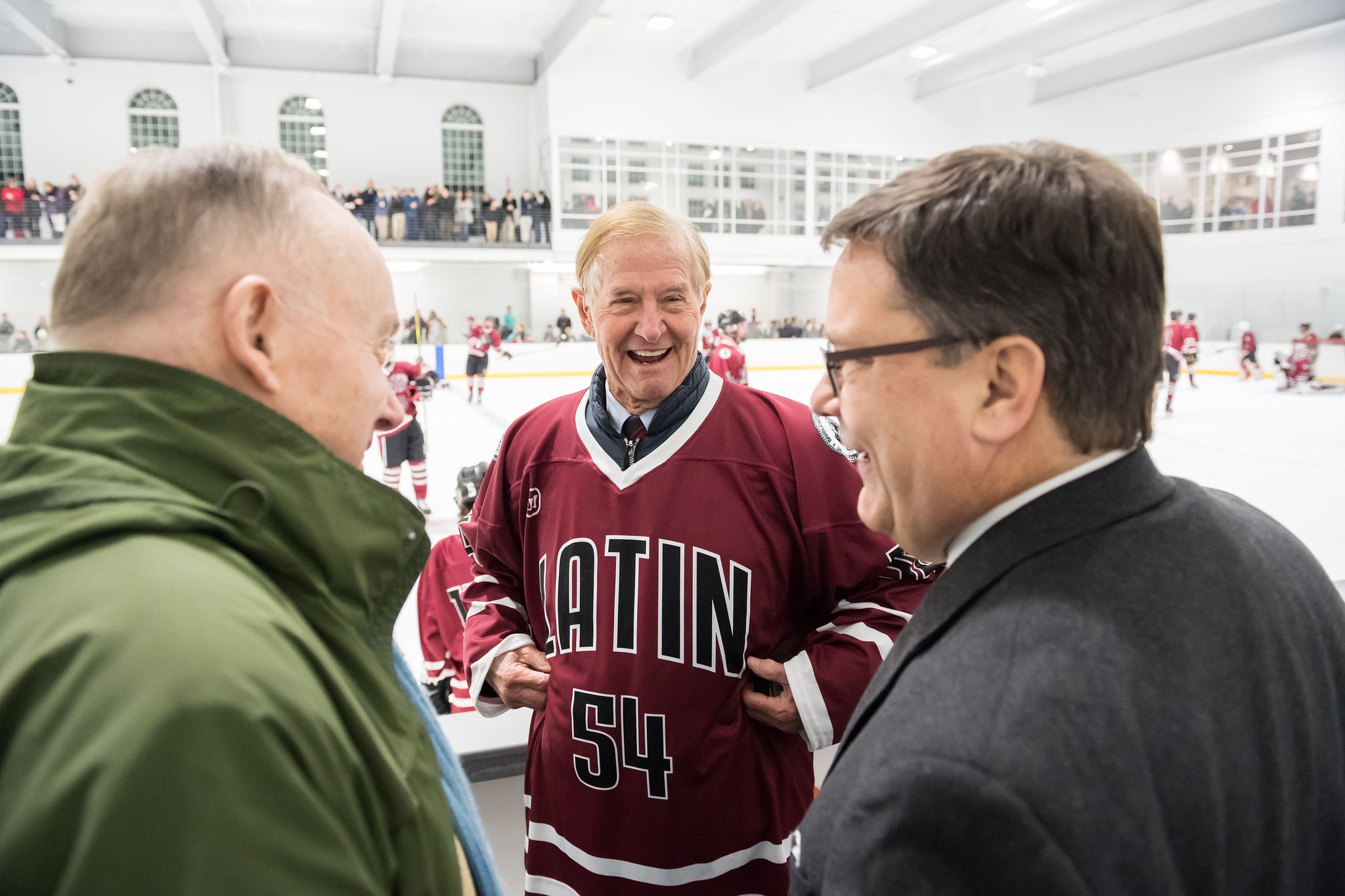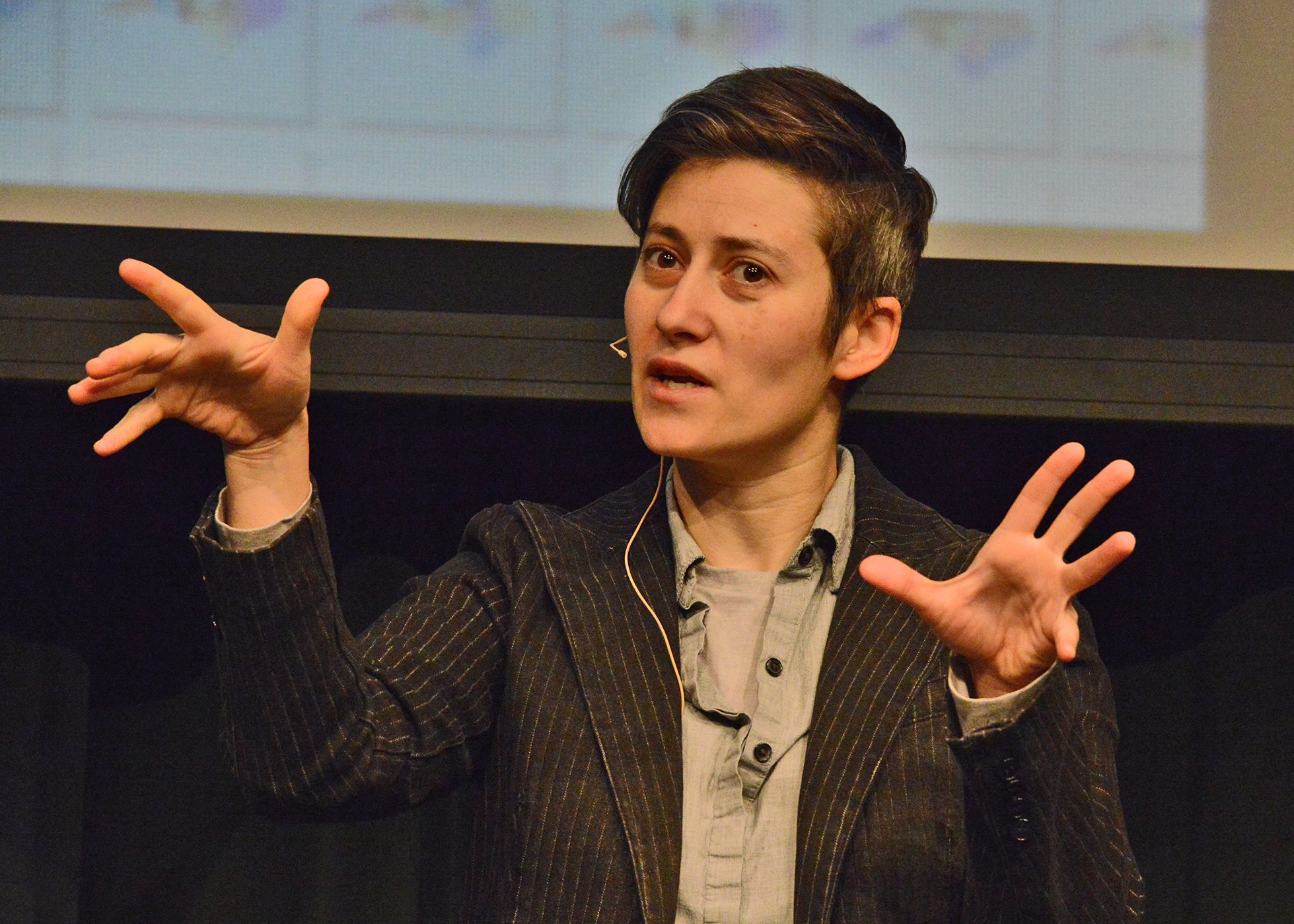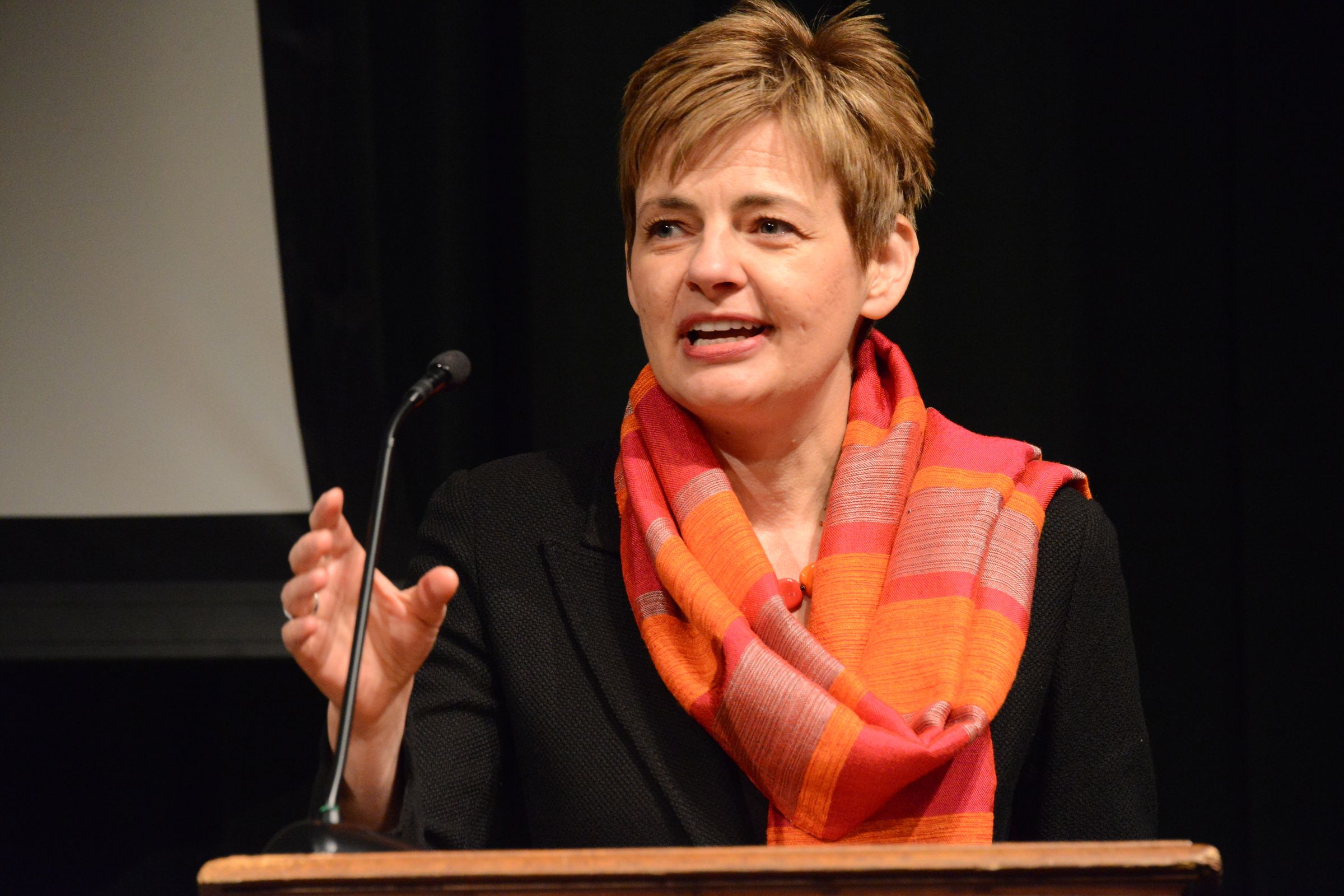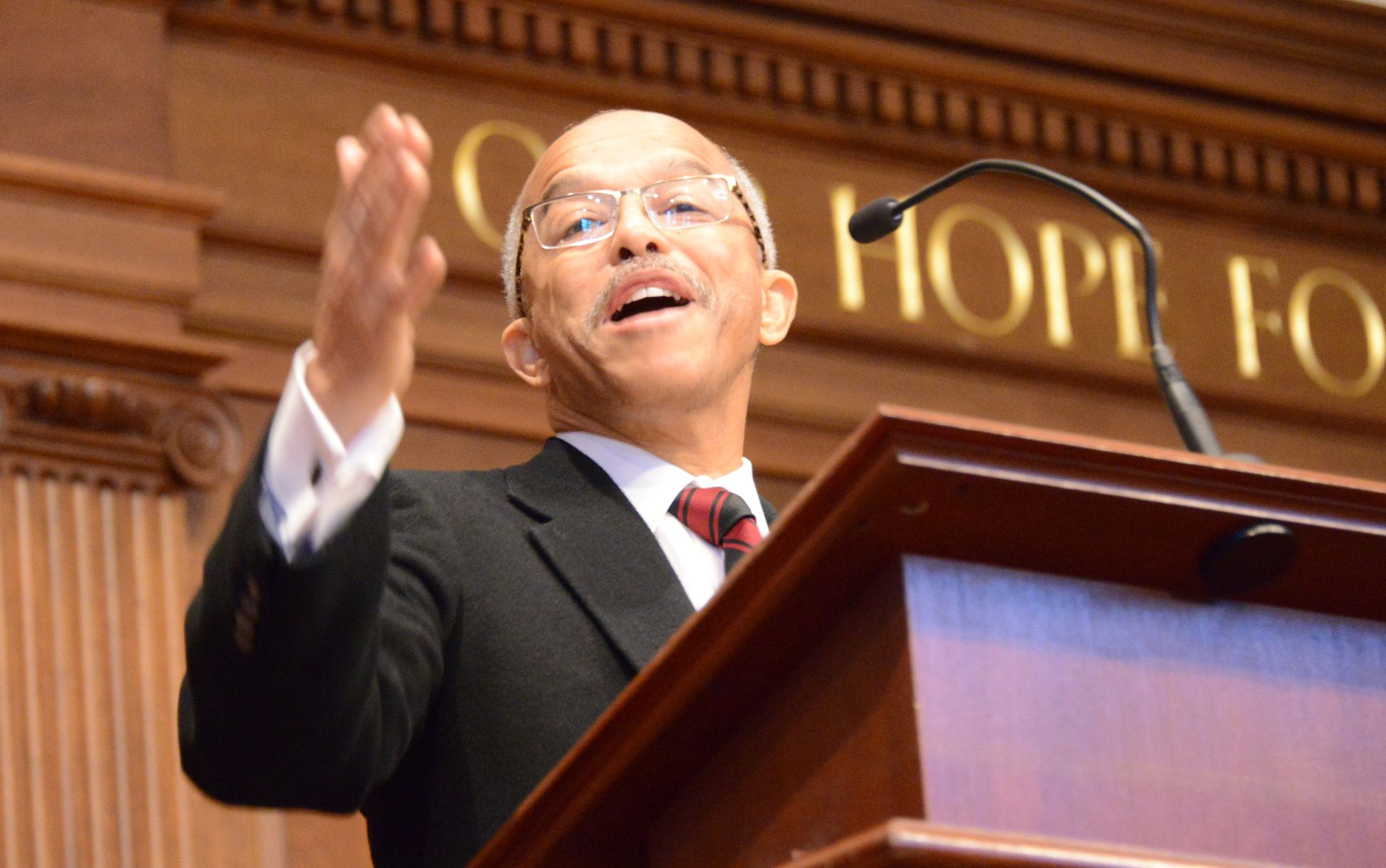Decisions of the Supreme Court can be indicators of our nation’s values, culture, and changing demographics. They can illuminate, or even move, our country’s compass. In an increasingly polarized and politicized climate, the reliability of this venerable institution is ever more important.
On 13 February, Derek Ho ’92 and David Friedman, father of Class IV’s Daniel Sun-Friedman, co-presented in Hall on the role and work of the Supreme Court. Both practicing lawyers, Messrs. Ho and Friedman each clerked for Supreme Court justices—Mr. Ho for Justice Souter, and Mr. Friedman for Justice Stevens. Their presentation included a review of some landmark cases and a preview of some cases likely to come, offering a sense of what hangs in the balance vis-à-vis politicization of the court and the political process more broadly.
Both Mr. Ho and Mr. Friedman also clerked for U.S. Court of Appeals Judge Michael Boudin; both graduated from Harvard College and Harvard Law. Today, Mr. Ho is a partner with the firm Kellogg Hansen, and has represented clients in three of the Supreme Court’s most significant recent class action decisions, prevailing in all three. He has represented both plaintiffs and defendants as lead counsel in federal appellate and district courts and regularly provides antitrust counseling to prominent U.S. companies. Mr. Friedman is senior vice president for legal and government affairs for the Red Sox and senior counsel for Fenway Sports Group. He previously served as First Assistant Attorney General for Massachusetts, where he advised Attorney General Martha Coakley.
Messrs. Ho and Friedman spent the rest of the morning discussing related topics in classes with upperclassmen in U.S. History and Class VI history students.

